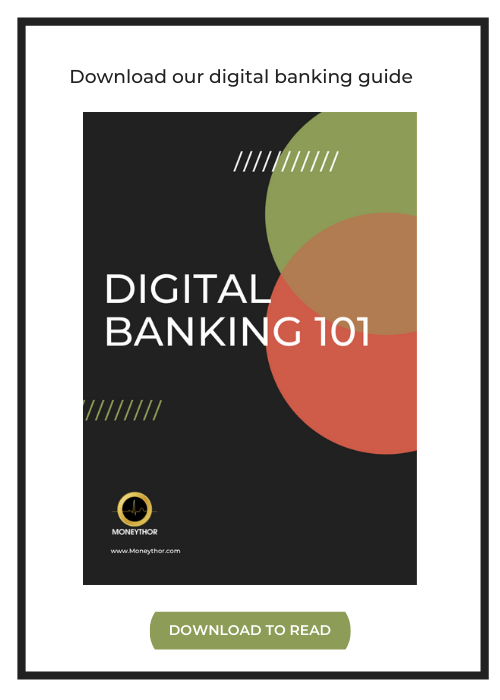With the emergence of digital banking, online shopping and simple in-store payments, the way we spend money has changed. We live in a time of in-the-moment-purchases with little emphasis on planning, saving and investing. This shift in consumer spending habits is having a negative impact on the financial health of a large proportion of people.
According to The Centre of Financial Services Innovation, only 28% of Americans can be considered financially healthy, meaning that over 70% of the population are struggling to manage their money correctly. In the same survey it found that nearly half of respondent’s monthly spending had equalled or exceeded their monthly income, leaving them with no savings and high levels of debt.
Statistics like this are scary and prove that there is an obvious need for better financial management, education and well-being.
What is financial well-being?
According to The Consumer Financial Protection Bureau, financial well-being is the “state of being wherein a person can fully meet current and ongoing financial obligations, can feel secure in their financial future, and is able to make choices that allow them to enjoy life”.
Why is financial well-being so important?
Financial well-being gives people the security they need to enjoy their lives. The side effects of poor financial health include stress-related illness, decreased work productivity, absenteeism, depression and anxiety. Being financially healthy means people can make better financial decisions, manage debt effectively and plan for saving and retirement.
Added to that, when a country has a financially healthy population it reduces the pressure on governments to support the retiring population and leads to inclusive growth which decreases levels of poverty, inequality and social exclusion.
How can data empower people to take control of their finances?
- Data can help consumers manage their money.
- Data can power financial literacy.
- Data can encourage consumers to invest.
- Data can promote need-selling.
- Data holds the key to financial well-being.
- Data can help consumers manage their money
Having access to financial data is the first step in helping people manage their finances and empowering them to make the right financial decisions. In today’s technological age, accessing financial information should be simple and convenient, with aggregated accounts to provide a dashboard view of one’s current financial situation.
While having access to this data is useful, if it isn’t presented in a transparent way, it can be difficult for people to understand what each payment is and how they can cut back on spending. By giving people a clear view of their income and expenditure, they can properly plan and organise their finances.
The traditional statement is going through a period of disruption thanks to digital and mobile banking. Many banks now offer upgraded statements that are more intuitive and interactive, with transactions categorised by type e.g. food, transport, shopping. Categorising data in this way allows people to see where they are spending their money and highlights any potential opportunities for saving and investing.
DBS offers this type of categorisation on its digital channels and takes it a step further by providing actionable content, including personal financial management recommendations. These recommendations and alerts nudge consumers to make better financial decisions e.g. encourage consumers to setup a budget to manage their spending, to set goals for savings or to alert them to potential cash-flow issues in advance. Recommendations like these are completely personalised thanks to data analytics and machine learning that find patterns based on previous transactions and provide the right recommendation to the right person at the right time.
- Data can power financial literacy
Many people have little understanding of their finances and the impact that today’s financial decisions can have on their future. This lack of understanding is one of the key reasons why people struggle to manage their finances correctly.
Financial literacy, which is the education and understanding of managing personal finance, borrowing and investing, provides people with the knowledge they need to make financially responsible decisions. Financial literacy can be as simple as explaining how a current account works, but it can have a big impact on a person’s overall financial well-being. Those with low financial literacy tend to have less wealth, higher debt and pay more for financial products and services.
- Data can encourage consumers to invest
Once customers have a better understanding of their financial situation, they can start to look into investing some of their extra cash. Modern digital platforms are making investing easier and less intimidating for people.
For example, Raiz Invest, a mobile-first investment platform that serves customers across the APAC region, provides a simple tool for customers to invest their spare change rounded up from daily transactions into a diversified portfolio. It makes investing simple and doesn’t require a big upfront investment. Platforms like Raiz make investing accessible to all people regardless of their earnings.
- Data can promote need-selling
More often than not, people enter into debt agreements that do not suit their needs and/or that they cannot sufficiently manage. Lenders need to offer more personalised and suitable financial services and solutions, rather than using a one-size-fits-all approach which rarely actually fits.
Most lenders and banks collect and collate a huge amount of data on their customers, this data holds the key to need-selling and contextual marketing. By using the data that banks have on their clients and applying technologies such as real-time analytics, machine learning and AI, thousands of transactions can be reviewed and predictions can be made on how much a person will spend, whether or not they will need to go into debt and detect how much money, if any, a person will need to borrow.
This same technology can also stop people from going into unnecessary debt as it can forecast a person’s cashflow, warning them when they are about to go into overdraft and helping them to avoid it.
- Data holds the key to financial well-being
Data holds the key to improving the financial well-being of banking customers, it can give them the transparent overview of their finances they need, educate them on financial affairs and provide them with financial services that will help them to become more financially stable.
Blog post updated August 2020


